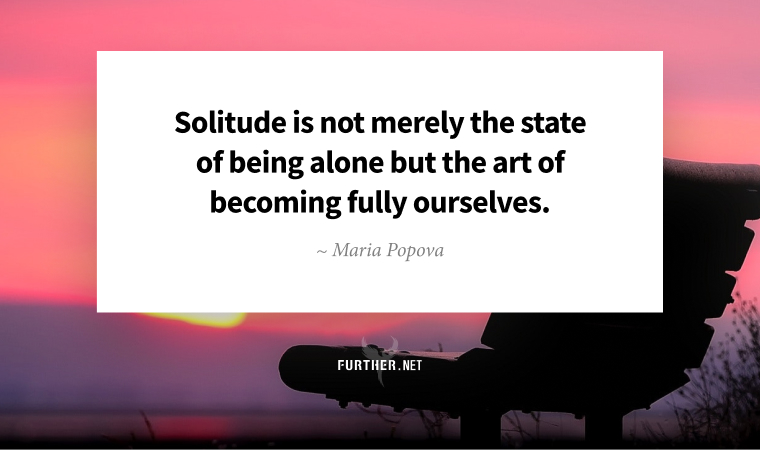
Thanks to the pandemic, the idea of solitude might make you want to run for the hills (metaphorically speaking), especially if you live by yourself. However, there’s a big difference between isolation and solitude — namely, how you view your time alone.
As developmental psychologist and solitude expert Virginia Thomas found in her research, those who choose alone time tend to feel “full of thoughts or things to do.” Conversely, when the choice isn’t yours, being by yourself can feel lonely, empty, and disconnected.
With mask mandates lifted and life returning to “normal,” the decision to retreat and spend time on your own will become voluntary. And there are compelling reasons to ensure you stay practiced in the art of solitude.
Why Go It Alone
While Dr. Thomas’ research on solitude-seeking teens and young adults found higher levels of personal growth and self-acceptance and less depression, studies show we get even more out of alone time as we age. With increased cognitive and emotional skills, we’re better able to use solitude to our advantage.
As Jenn Drummond, a mountaineer who spends a lot of solo time training to become the first woman to climb the Seven Second Summits, told the New York Times:
Loneliness is happening to me. Solitude is happening for me. That little shift makes the biggest difference.
In that solitary space, you can bask in the calming effects of peace and quiet. Or, if being on your own makes you uncomfortable, don’t suffer.
Instead, choose an activity you genuinely like and get into a flow. One caveat: Dr. Thomas’ research shows that “me time” is more emotionally satisfying for those who stay off their phones and skip (doom) scrolling social media.
Fill Your Solo Cup
The good news is that solitude comes in all shapes and sizes. For example, legendary diplomat, author, teacher, and businessman George P. Schultz was known for his perspective power hour: one undisturbed hour per week where he could daydream. And science shows a solitary walk provides mental clarity and supports innovation, problem-solving, and creativity.
That said, if you’re an extrovert who thrives on connection and equates solitude with excruciating silence, you’re in luck. Not only is quiet not a requirement (although it does have benefits) but staying in touch with others can be part of your routine.
Astronaut Jim “Ox” van Hoften’s loneliness while on space missions was mitigated by having a supportive crew. And doing things on your own, like playing Wordle, can foster connection later when you share your results in a group chat. (Something I wouldn’t know anything about ?)
So go ahead — make time to be alone. Solitude gives you the fortitude necessary to pull yourself together.
How to Learn to Love Being Alone (New York Times)
